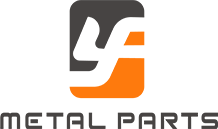
CNC precision machining is a general term used for various machining applications. 'CNC' stands for 'Computer Numerical Control' and refers to the programmable functions of a machine that enable it to perform many functions with minimal human control. CNC machining is the manufacture of parts using CNC-controlled machines. The term describes a series of subtractive manufacturing processes in which material is removed from an inventory of workpieces or bars to produce a finished part. 5 common types of CNC machining performed by 5 different types of CNC machines.
These processes are used in many applications in various industries such as medical, aerospace, industrial, oil and gas, hydraulics, firearms, and more. Various materials can be CNC machined, including metals, plastics, glass, composites and wood.
CNC machining has many advantages over machining without CNC programmable capabilities. Cycle times can be significantly reduced, improved finishes and multiple functions can be performed simultaneously and can improve quality and consistency. It is suitable for medium and high volume requirements where accuracy and complexity are required.
CNC lathes and lathes feature the ability to rotate the material during machining. The cutting tools of these machines are fed in a linear motion along the rotating bar stock; removing surrounding material until the desired diameter is achieved.
Part of a CNC lathe. The rod of material rotates and slides axially into the machine through a guide bush. This provides better support for the material when the tool is machining part features.
CNC lathes and lathes can create internal and external features on parts: drilling, boring, broaching, reaming, grooves, taps, tapers and threads. Components made on CNC precision machining and turning centers include screws, bolts, shafts, poppets, and more.
CNC milling machines feature the ability to rotate the cutting tool while keeping the material workpiece/block stationary. They can produce a variety of shapes, including face milled features and peripheral milled features.
Components produced on CNC milling machines are typically square or rectangular shapes with various functions.
CNC laser machines feature a point planer with a highly focused laser beam for precise cutting, slicing or engraving of materials. The laser heats the material and melts or vaporizes it, creating cuts in the material. Typically, the material is in sheet form and the laser beam is moved back and forth across the material to create precise cuts.
This process produces a wider range of designs than conventional cutters and often produces cuts and/or edges that do not require an additional finishing process.
CNC laser engraving machines are usually used for part marking of mechanical parts. For example, it can be difficult to machine a logo and company name into a CNC-turned or CNC-milled part. However, it can be added to components using laser engraving even after the machining operation is complete.
Copyright © 2025 Dongguan Yifeng Metal Co., Ltd. | All Rights Reserved